114 low relevance results shown for 'Electric'. |1|2|3|4|5 | Next | View 100 per page
Showing low relevance matches only. Return to normal search results
Electrical Circuits - Electrical energy can be transferred and transformed in electrical circuits and can be generated from a range of sources ACSSU219 Year 6 Physical Sciences
Alternative Energies - Energy from a variety of sources can be used to generate electricity ACSCH030 Year 11 Chemical fundamentals
Properties and structure of materials - Ions are atoms or groups of atoms that are electrically charged due to an imbalance in the number of electrons and protons; ions are represented by formulae which include the number of constituent atoms and the charge of the ion (for example, O2–, SO42–) ACSCH032 Year 11 Chemical fundamentals
Properties and structure of materials - The characteristic properties of metals (for example, malleability, thermal conductivity, electrical conductivity) are explained by modelling metallic bonding as a regular arrangement of positive ions (cations) made stable by electrostatic forces of attra ACSCH108 Year 12 Equilibrium acids and redox reactions
Oxidation and reduction - Galvanic cells, including fuel cells, generate an electrical potential difference from a spontaneous redox reaction; they can be represented as cell diagrams including anode and cathode halfequations ACSPH016 Year 11 Thermal nuclear and electrical physics
Heating processes - Heat transfer occurs between and within systems by conduction, convection and/or radiation ACSPH020 Year 11 Thermal nuclear and electrical physics
Heating processes - Provided a substance does not change state, its temperature change is proportional to the amount of energy added to or removed from the substance; the constant of proportionality describes the heat capacity of the substance ACSPH022 Year 11 Thermal nuclear and electrical physics
Heating processes - Two systems in contact transfer energy between particles so that eventually the systems reach the same temperature; that is, they are in thermal equilibrium ACSPH028 Year 11 Thermal nuclear and electrical physics
Ionising radiation and nuclear reactions - Some nuclides are unstable and spontaneously decay, emitting alpha, beta and/or gamma radiation over time until they become stable nuclides ACSPH029 Year 11 Thermal nuclear and electrical physics
Ionising radiation and nuclear reactions - Each species of radionuclide has a specific halflife ACSPH030 Year 11 Thermal nuclear and electrical physics
Ionising radiation and nuclear reactions - Alpha, beta and gamma radiation have sufficient energy to ionise atoms ACSPH039 Year 11 Thermal nuclear and electrical physics
Electrical circuits - Energy is conserved in the energy transfers and transformations that occur in an electrical circuit ACSPH040 Year 11 Thermal nuclear and electrical physics
Electrical circuits - The energy available to charges moving in an electrical circuit is measured using electric potential difference, which is defined as the change in potential energy per unit charge between two defined points in the circuit ACSPH041 Year 11 Thermal nuclear and electrical physics
Electrical circuits - Energy is required to separate positive and negative charge carriers; charge separation produces an electrical potential difference that can be used to drive current in circuits ACSPH042 Year 11 Thermal nuclear and electrical physics
Electrical circuits - Power is the rate at which energy is transformed by a circuit component; power enables quantitative analysis of energy transformations in the circuit ACSPH043 Year 11 Thermal nuclear and electrical physics
Electrical circuits - Resistance for ohmic and nonohmic components is defined as the ratio of potential difference across the component to the current in the component ACSPH044 Year 11 Thermal nuclear and electrical physics
Electrical circuits - Circuit analysis and design involve calculation of the potential difference across, the current in, and the power supplied to, components in series, parallel and series/parallel circuits ACSPH137 Year 12 Revolutions in modern physics
Quantum theory - A wide range of phenomena, including black body radiation and the photoelectric effect, are explained using the concept of light quanta ACSPH108 Year 12 Gravity and electromagnetism
Electromagnetism - Magnets, magnetic materials, moving charges and currentcarrying wires experience a force in a magnetic field; this force is utilised in DC electric motors ACSPH021 Year 11 Thermal nuclear and electrical physics
Heating processes - Change of state involves internal energy changes to form or break bonds between atoms or molecules; latent heat is the energy required to be added to or removed from a system to change the state of the system ACSCH031 Year 11 Chemical fundamentals
Properties and structure of materials - The properties of ionic compounds (for example, high melting point, brittleness, ability to conduct electricity when liquid or in solution) are explained by modelling ionic bonding as ions arranged in a crystalline lattice structure with forces of attract ACSCH027 Year 11 Chemical fundamentals
Properties and structure of atoms - The type of bonding within substances explains their physical properties, including melting and boiling point, conductivity of both electricity and heat, strength and hardness ACSPH103 Year 12 Gravity and electromagnetism
Electromagnetism - A positively charged body placed in an electric field will experience a force in the direction of the field; the strength of the electric field is defined as the force per unit charge ACSPH104 Year 12 Gravity and electromagnetism
Electromagnetism - Point charges and charged objects produce an electric field in the space that surrounds them; field theory attributes the electrostatic force on a point charge or charged body to the presence of an electric field ACSPH105 Year 12 Gravity and electromagnetism
Electromagnetism - When a charged body moves or is moved from one point to another in an electric field and its potential energy changes, work is done on or by the field
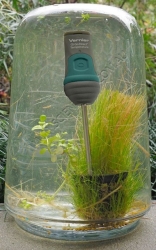
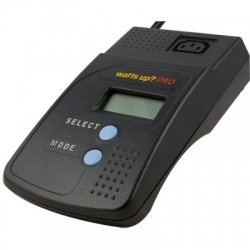
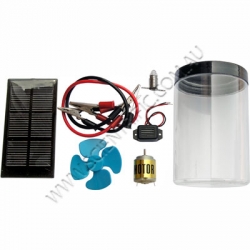

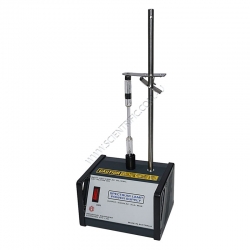
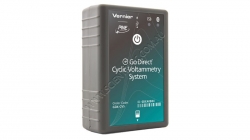
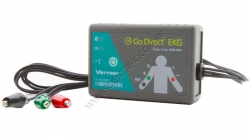
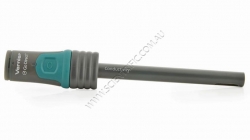
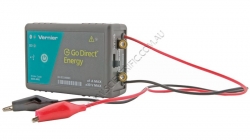
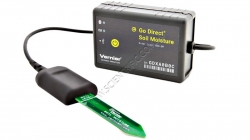
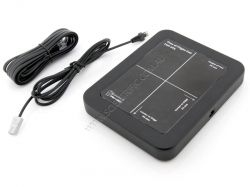
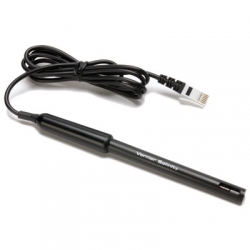
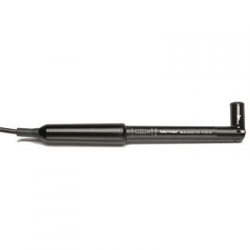
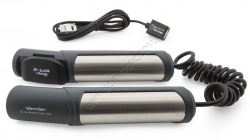
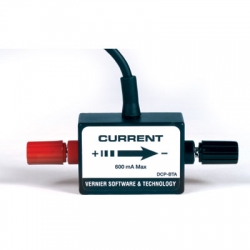
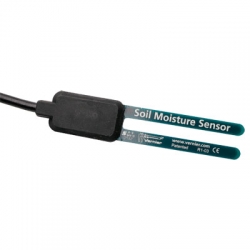
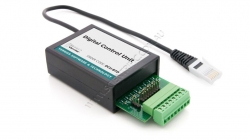
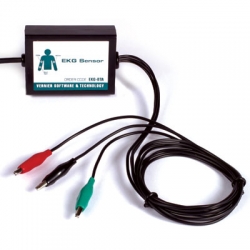
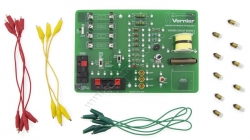



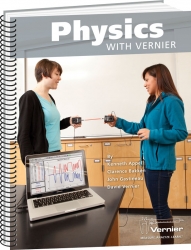

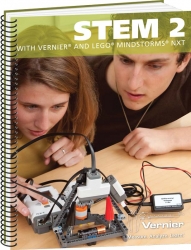
114 low relevance results shown for 'Electric'. |1|2|3|4|5 | Next | View 100 per page
Showing low relevance matches only. Return to normal search results
Curriculum resources related to 'Electric'
ACSSU097 Year 6 Physical SciencesElectrical Circuits - Electrical energy can be transferred and transformed in electrical circuits and can be generated from a range of sources ACSSU219 Year 6 Physical Sciences
Alternative Energies - Energy from a variety of sources can be used to generate electricity ACSCH030 Year 11 Chemical fundamentals
Properties and structure of materials - Ions are atoms or groups of atoms that are electrically charged due to an imbalance in the number of electrons and protons; ions are represented by formulae which include the number of constituent atoms and the charge of the ion (for example, O2–, SO42–) ACSCH032 Year 11 Chemical fundamentals
Properties and structure of materials - The characteristic properties of metals (for example, malleability, thermal conductivity, electrical conductivity) are explained by modelling metallic bonding as a regular arrangement of positive ions (cations) made stable by electrostatic forces of attra ACSCH108 Year 12 Equilibrium acids and redox reactions
Oxidation and reduction - Galvanic cells, including fuel cells, generate an electrical potential difference from a spontaneous redox reaction; they can be represented as cell diagrams including anode and cathode halfequations ACSPH016 Year 11 Thermal nuclear and electrical physics
Heating processes - Heat transfer occurs between and within systems by conduction, convection and/or radiation ACSPH020 Year 11 Thermal nuclear and electrical physics
Heating processes - Provided a substance does not change state, its temperature change is proportional to the amount of energy added to or removed from the substance; the constant of proportionality describes the heat capacity of the substance ACSPH022 Year 11 Thermal nuclear and electrical physics
Heating processes - Two systems in contact transfer energy between particles so that eventually the systems reach the same temperature; that is, they are in thermal equilibrium ACSPH028 Year 11 Thermal nuclear and electrical physics
Ionising radiation and nuclear reactions - Some nuclides are unstable and spontaneously decay, emitting alpha, beta and/or gamma radiation over time until they become stable nuclides ACSPH029 Year 11 Thermal nuclear and electrical physics
Ionising radiation and nuclear reactions - Each species of radionuclide has a specific halflife ACSPH030 Year 11 Thermal nuclear and electrical physics
Ionising radiation and nuclear reactions - Alpha, beta and gamma radiation have sufficient energy to ionise atoms ACSPH039 Year 11 Thermal nuclear and electrical physics
Electrical circuits - Energy is conserved in the energy transfers and transformations that occur in an electrical circuit ACSPH040 Year 11 Thermal nuclear and electrical physics
Electrical circuits - The energy available to charges moving in an electrical circuit is measured using electric potential difference, which is defined as the change in potential energy per unit charge between two defined points in the circuit ACSPH041 Year 11 Thermal nuclear and electrical physics
Electrical circuits - Energy is required to separate positive and negative charge carriers; charge separation produces an electrical potential difference that can be used to drive current in circuits ACSPH042 Year 11 Thermal nuclear and electrical physics
Electrical circuits - Power is the rate at which energy is transformed by a circuit component; power enables quantitative analysis of energy transformations in the circuit ACSPH043 Year 11 Thermal nuclear and electrical physics
Electrical circuits - Resistance for ohmic and nonohmic components is defined as the ratio of potential difference across the component to the current in the component ACSPH044 Year 11 Thermal nuclear and electrical physics
Electrical circuits - Circuit analysis and design involve calculation of the potential difference across, the current in, and the power supplied to, components in series, parallel and series/parallel circuits ACSPH137 Year 12 Revolutions in modern physics
Quantum theory - A wide range of phenomena, including black body radiation and the photoelectric effect, are explained using the concept of light quanta ACSPH108 Year 12 Gravity and electromagnetism
Electromagnetism - Magnets, magnetic materials, moving charges and currentcarrying wires experience a force in a magnetic field; this force is utilised in DC electric motors ACSPH021 Year 11 Thermal nuclear and electrical physics
Heating processes - Change of state involves internal energy changes to form or break bonds between atoms or molecules; latent heat is the energy required to be added to or removed from a system to change the state of the system ACSCH031 Year 11 Chemical fundamentals
Properties and structure of materials - The properties of ionic compounds (for example, high melting point, brittleness, ability to conduct electricity when liquid or in solution) are explained by modelling ionic bonding as ions arranged in a crystalline lattice structure with forces of attract ACSCH027 Year 11 Chemical fundamentals
Properties and structure of atoms - The type of bonding within substances explains their physical properties, including melting and boiling point, conductivity of both electricity and heat, strength and hardness ACSPH103 Year 12 Gravity and electromagnetism
Electromagnetism - A positively charged body placed in an electric field will experience a force in the direction of the field; the strength of the electric field is defined as the force per unit charge ACSPH104 Year 12 Gravity and electromagnetism
Electromagnetism - Point charges and charged objects produce an electric field in the space that surrounds them; field theory attributes the electrostatic force on a point charge or charged body to the presence of an electric field ACSPH105 Year 12 Gravity and electromagnetism
Electromagnetism - When a charged body moves or is moved from one point to another in an electric field and its potential energy changes, work is done on or by the field
Products related to 'Electric'

Vernier Go Direct Temperature Probe
VERNIER GO DIRECT TEMPERATURE PROBE
Vernier's water resistant Go Direct Temperature Probe is a rugged, general purpose temperature sensor that students can use to monitor temperature. It connects wirelessly via Bluetooth® or it can be wired via USB to your device.
...
Order code: GDX-TMP

Vernier Watts Up Pro Power Monitor
Save 50% but very limited stock
WATTS UP PRO INTERNATIONAL MODEL
Watts Up Pro is a device that measures real-time electricity usage and cost. It auto-IDs and connects to a USB port on your computer or LabQuest. Logger Pro 3.8 or LabQuest App 1.3 or newer are required.
When connected, Watts Up Pro can...
Order code: WU-PRO-AU

Solar Power and Energy Transformation Kit
An economic and engaging kit for students to examine how a solar cell can be used to power three different devices and see the conversion of light energy into into electrical energy which is then converted into:
Mechanical energy: ... to run a fan and to push air from one place ...
Order code: SC7250

Vernier Go Direct Temperature Teacher Pack
VERNIER GO DIRECT TEMPERATURE PROBE TEACHER PACK
Buy more and save. With Vernier's Go Direct Temperature Teacher Pack you receive eight Vernier Go Direct Temperature Probes and a convenient charging station that allows you to charge the eight Go Direct Temperature Probes ...
Order code: GDX-TMP-TP

IEC Spectrum Discharge Tube Power Supply
IEC SPECTRUM TUBE POWER SUPPLY
An extra high voltage power supply to operate spectrum (spectral) discharge tubes. Complete with tube support.
Features
• Safety recessed high voltage socket
• Mains operated
• Supplies 4kV at 3mA max
• The top terminal can be ...
Order code: HL3785-001

Vernier Go Direct Cyclic Voltammetry System
VERNIER GO DIRECT CYCLIC VOLTAMMETRY SYSTEM
With the Vernier Go Direct Cyclic Voltammetry System, developed in part with Pine Research specialists in electrochemical research instrumentation, students can easily control and apply potential to a chemical system and measure...
Order code: GDX-CVS

Vernier Go Direct EKG Sensor
VERNIER GO DIRECT EKG SENSOR
The Vernier Go Direct EKG Sensor measures electrical activity in the heart and electrical signals produced during muscle contractions. The wireless options minimize the concern of cables getting caught and tangled during experiments. This sens...
Order code: GDX-EKG

Vernier Go Direct Conductivity Probe
VERNIER GO DIRECT CONDUCTIVITY PROBE
Vernier's Go Direct Conductivity Probe determines the ionic content of an aqueous solution by measuring its electrical conductivity. It directly connects wirelessly via Bluetooth® or wired via USB to your platform.
The Vernier Go Di...
Order code: GDX-CON

Vernier Go Direct Energy Sensor
VERNIER GO DIRECT ENERGY SENSOR
The Vernier Go Direct Energy Sensor quantifies the voltage, current, power and energy output of small wind turbines and solar panels like those used in our KidWind Experiment Kits. It connects wirelessly via Bluetooth® wireless technology o...
Order code: GDX-NRG

Vernier Go Direct Soil Moisture Sensor
Available during Term 4 2024
VERNIER GO DIRECT SOIL MOISTURE SENSOR
Vernier's Go Direct Soil Moisture Sensor uses capacitance to measure the water content of soil by measuring the dielectric permittivity of the soil, which is a function of the water content.
Simply insert this rugged sensor into ...
Order code: GDX-SM

Vernier Projectile Time of Flight Pad
VERNIER TIME OF FLIGHT PAD
Vernier's Time of Flight Pad is used with the VPL Vernier Projectile Launcher or the GDX-PL Vernier Go Direct Projectile Launcher to determine the launch speed of a projectile along with the time the projectile is in flight.
Precisely measuri...
Order code: TOF-VPL

Vernier Salinity Sensor
VERNIER SALINITY SENSOR
The Vernier Salinity Sensor uses density and electrical conductivity to measure salinity. The Salinity Sensor easily and precisely measures the total dissolved salt content in an aqueous solution. Measure water with a wide variety of salinities, fr...
Order code: SAL-BTA-EB

Vernier Magnetic Field Sensor
VERNIER MAGNETIC FIELD SENSOR
Vernier's Magnetic Field Sensor can be used to study the field around permanent magnets, coils and electrical devices. It features a rotating sensor tip to measure both transverse and longitudinal magnetic fields.
The sensor uses a Hall ef...
Order code: MG-BTA

Vernier Hand-Grip Heart Rate Monitor
Currently unavailable, we are awaiting confirmation it complies with Button Battery safety requirements.
VERNIER HAND GRIP HEART RATE MONITOR The Vernier Hand-Grip Heart Rate Monitor is ideal for determining a person's heart rate while mobile or stationary. With this sensor heart rate can be monitored during, as well as after exercise. The sensor consists of wireless hand gr... Order code: HGH-BTA
VERNIER HAND GRIP HEART RATE MONITOR The Vernier Hand-Grip Heart Rate Monitor is ideal for determining a person's heart rate while mobile or stationary. With this sensor heart rate can be monitored during, as well as after exercise. The sensor consists of wireless hand gr... Order code: HGH-BTA

Vernier Current Probe
VERNIER CURRENT PROBE
The Current Probe is designed for exploring the basic principles of electricity. Use the Current Probe to measure currents in low-voltage AC and DC circuits. This system is ideal for use in most "battery and bulb" circuits. Use it with the Differenti...
Order code: DCP-BTA

Vernier Soil Moisture Sensor
VERNIER SOIL MOISTURE SENSOR
The Soil Moisture Sensor uses capacitance to measure the water content of soil by measuring the dielectric permittivity of the soil - a function of the water content. Simply insert this rugged sensor into the soil to be tested, and the volumet...
Order code: SMS-BTA

Vernier Digital Control Unit
VERNIER DIGITAL CONTROL UNIT
Including Vernier's DCU with your standard Vernier sensors provides a perfect way to implement hands-on STEM and engineering projects in the classroom. The engaging quality of DCU projects will appeal to students who may not necessarily be dra...
Order code: DCU-BTD

Vernier EKG Sensor
VERNIER EKG SENSOR
The EKG Sensor measures electrical signals produced by the heart. It uses three disposable electrodes. An EKG graph is displayed, demonstrating to students the contraction and repolarisation of the heart's chambers. A package of 100 disposable electrode...
Order code: EKG-BTA

Vernier Circuit Board 2
VERNIER CIRCUIT BOARD 2
The Vernier Circuit Board 2 is a convenient platform for circuit labs, from basic series and parallel circuits to RLC circuits. Many components are provided for experimentation, and additional components can be added to expand the capability of thi...
Order code: VCB2

Vernier Relative Humidity Sensor
VERNIER RELATIVE HUMIDITY SENSOR
Vernier's Relative Humidity Sensor contains an integrated circuit that can be used to monitor relative humidity
over the range 0 to 95% (± 5%). The sensor has applications in weather studies, monitoring greenhouses
or for determining d...
Order code: RH-BTA

Elementary Science with Vernier
ELEMENTARY SCIENCE WITH VERNIER
Elementary Science with Vernier is a lab book containing 43 fun and engaging experiments for students in grades 2-6. Activities investigate the topics of temperature, motion, force, magnetism, light, electricity and pressure. Also included ...
Order code: EWV

Elementary Science with Vernier - Electronic Version
ELEMENTARY SCIENCE WITH VERNIER - ELECTRONIC
Elementary Science with Vernier contains 43 fun and engaging experiments for students in grades 2-6. Activities investigate the topics of temperature, motion, force, magnetism, light, electricity and pressure. Also included are...
Order code: EWV-E

Physics with Vernier
PHYSICS WITH VERNIER
Physics with Vernier is a lab book containing 35 experiments in mechanics, sound, light, electricity and magnetism. This book has a wide variety of experiments for Motion Detectors, Force Sensors, Light Sensors, Magnetic Field Sensors, Microphones, Cu...
Order code: PWV

Physics with Vernier - Electronic Version
PHYSICS WITH VERNIER - ELECTRONIC
Physics with Vernier is a lab book containing 35 experiments in mechanics, sound, light, electricity and magnetism. This book has a wide variety of experiments for Motion Detectors, Force Sensors, Light Sensors, Magnetic Field Sensors, Mi...
Order code: PWV-E

STEM 2 with Vernier and LEGO MINDSTORMS NXT
Discontinued. Only 3 still available.
STEM 2 WITH VERNIER AND LEGO MINDSTORMS NXT ™
STEM 2 with Vernier and LEGO MINDSTORMS NXT™ is Vernier's second book of projects and labs in collaboration with LEGO. It has activities using a Dual-Range Force Sensor, Magnetic Field Sensor, Voltage Probe and Gas Press...
Order code: STEM2
114 low relevance results shown for 'Electric'. |1|2|3|4|5 | Next | View 100 per page



 ,
,